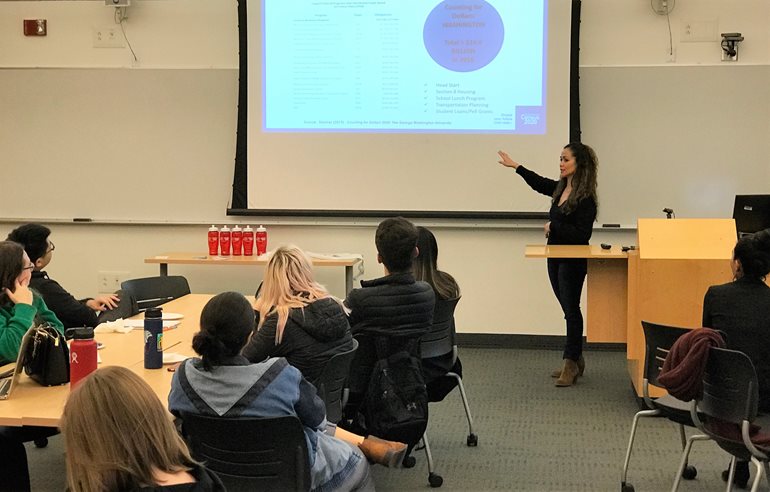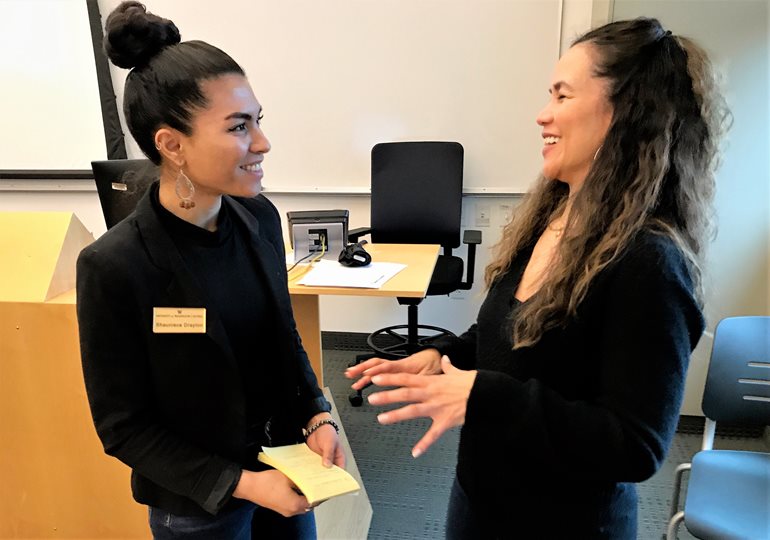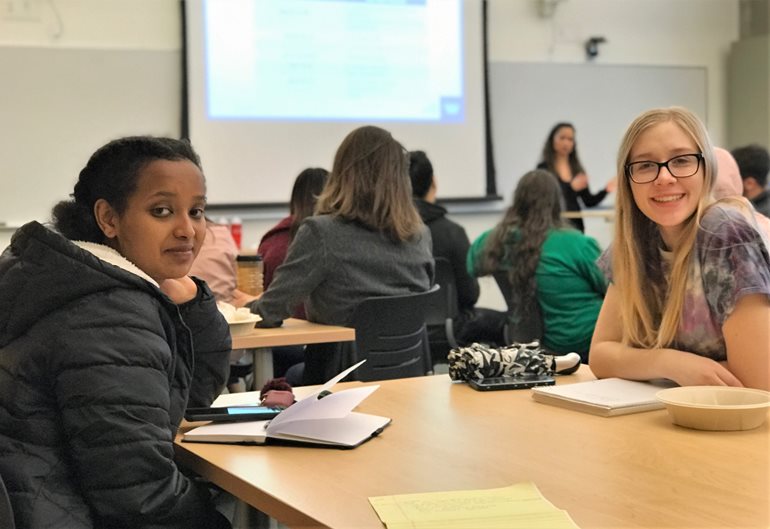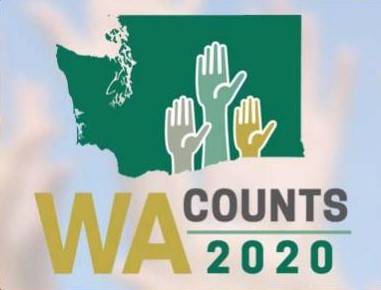
Census day is fast approaching, and everyone should be ready to answer the question: Where are you living as of April 1, 2020?
And while college students are among those populations that are historically undercounted in the U.S. census, UW Bothell students, staff, faculty and community partners are working to ensure that students — and their families and members of their home communities — count this year.
Shauniece Drayton, program coordinator of the student organization Achieving Community Transformation, leads the UW Bothell Census Complete Count committee. Educating and raising awareness about the census, she said, fits with ACT’s mission to provide opportunities for service, civic engagement and social justice.
Many students on the UW Bothell campus are similar to other under-counted groups, including renters, immigrants and refugees, Drayton added.
“I hope they’ll feel educated and empowered to fill out the census themselves and talk to their family and their community.”
We all count

The census committee includes representatives from the Student Diversity Center, Community-Based Learning & Research, Student Engagement & Activities, Residential Life and the Associated Students of the University of Washington Bothell.
ASUWB President Shugla Kakar has a personal reason to support the census. “I’m from Afghanistan, and my family is, too. The impact of the census is something that my whole family cares about, and I know I’ve never taken it,” Kakar said. “If I were to do outreach at a family gathering, I’d reach 70 members of my community from Afghanistan.”
21 Progress, a Seattle civic organization that is a long-standing partner of the University, is helping to train 10 students as census ambassadors. Students also can find census help at the United Way Benefits Hub in the Health and Wellness Resource Center in the Activities & Recreation Center.
To help educate and engage people on campus, ACT also hosted a census workshop, which was open to the public, in January. Francesca Ty Abellera, a Census Bureau partnership specialist, told about two dozen students and staff why it’s important for them to be advocates.
“The students are going to be the trusted voices on campus,” Abellera said. “They’re the ones who are going to be able to encourage other students and families to participate.”
A lot of students think they don’t need to participate because they’ll be counted by their parents. If they’re living on campus or somewhere else on their own, however, it’s important they participate, Abellera said. Among other uses, census figures drive some federal funding for education and colleges.
At the workshop, Abellera answered some common questions that are often raised about issues such as privacy, security and how the homeless are counted. (They can be counted at a shelter.)
Planning to count

Two of the students taking notes at the workshop, Solome Yohanes and Brittany Burbridge, live in Husky Village and are leaders in the Residence Hall Association. They plan to hold an event at their community center to encourage other residents to participate.
“I think it’s important that everyone is accounted for,” said Burbridge, a junior majoring in Education.
Added Yohanes, a sophomore majoring in Computer Science & Software Engineering: “I hope it helps financial aid. That would be great.”
Two winter community-based learning courses are also tied in with the census. First-year students in Gary Carpenter’s Creative Activism: Inspiring Change Through the Arts class are partnering with the cities of Bothell and Kenmore and with the Ronald Commons Housing in Shoreline to create art that raises awareness of the census.
Meanwhile, Master of Arts in Policy Studies students in Charlie Collins’ Policy Studies Practicum class are partnering with three organizations that are part of the Snohomish County Community of Color Coalition: Gambian Talents Promotion, which promotes Gambian culture in Washington; Homage, a senior services organization in Lynnwood; and UTSAV, a statewide organization based in Bothell that connects south Asians with local communities.
On April 1, the campus will also host a census kick-off event with guest speakers and a student panel from 3:30 to 7 p.m. in the Activities & Recreation Center.
We all benefit

A census every 10 years is required by the Constitution to allocate seats in the U.S. House of Representatives. A decade ago, the census resulted in Washington adding a 10th congressional district. Census data also guided the distribution $16.7 billion in the state in 2016 alone. That includes money for student loans, research grants, campus improvements, and health and social services.
Beginning in mid-March, the Census Bureau will send each household an invitation to go online or call to fill out the questionnaire. The bureau expects about half the population will complete their forms online. People also may respond by mail or through an in-person interview.
April 1 is census day. People will be reminded through April and May to participate. After that, Census Bureau employees may visit homes that have not responded. The bureau plans to finish counting by the end of July and to transmit totals to the president by the end of the year. The data will be publicly available at the end of March 2021. More information is available on the state’s 2020 census website.
The message is simple: It takes 10 minutes to answer 10 questions that will shape investments in your community in the next 10 years.
The census campaign is supported by the Washington State Council of Presidents, which represents the six public, four-year college and universities in Washington; the Washington State Board for Community and Technical Colleges; the Independent Colleges of Washington; and the Washington Student Association.



